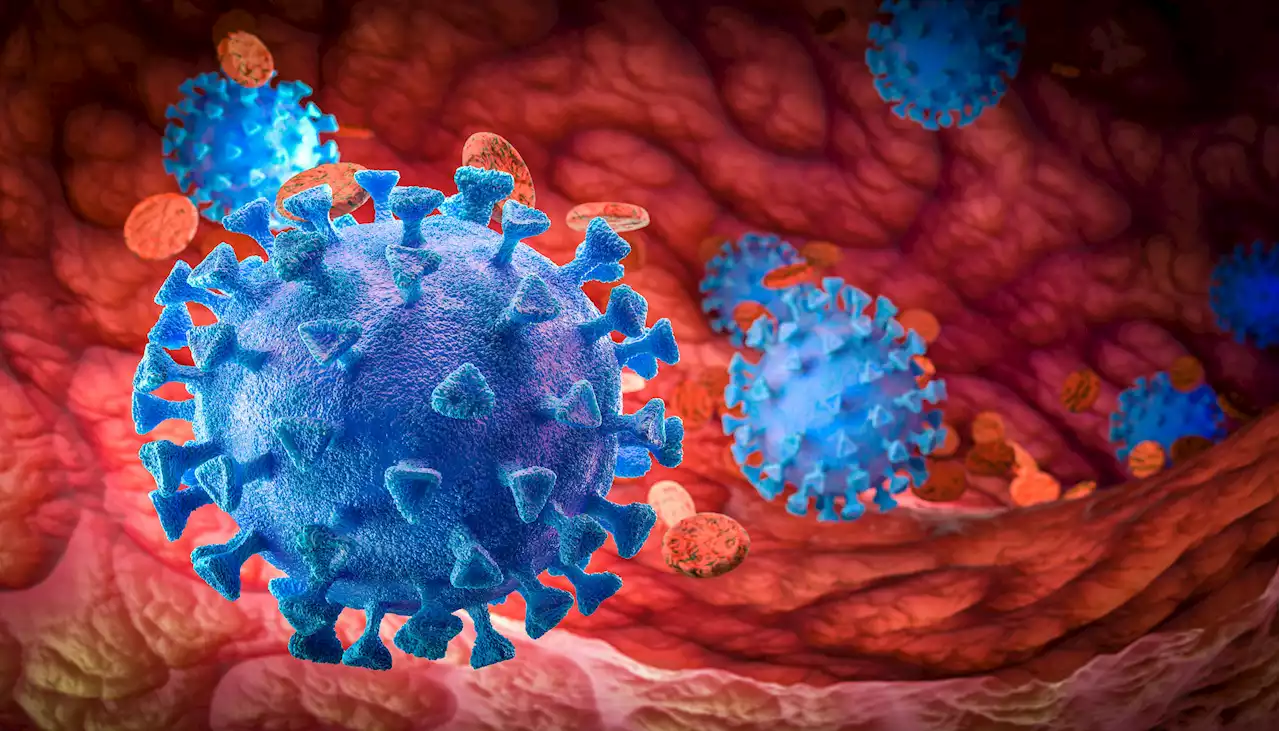Persons with initial moderate or severe/critical COVID-19 have impaired health-related quality of life twelve months after illness onset, according to a study published in BMCMedicine.
shows the impact on HRQL of initial COVID-19 severity, time since illness onset and sociodemographic- and clinical characteristics according to the final multivariate mixed linear models adjusted for confounders. All final models included clinical severity and time since illness onset, as predetermined, and migration background. The model for physical functioning and general health additionally included the number of comorbidities .
Table 2 Impact on HRQL of initial COVID-19 severity, time since enrolment and sociodemographic- and baseline clinical characteristicsDutch-origin participants had significantly better HRQL than participants with a migration background from either HIC or LMIC countries on the dimensions physical, social and role physical functioning, bodily pain and vitality.
Participants with three or more COVID-19 high-risk comorbidities had significantly worse HRQL on the dimensions physical functioning and general health than participants with less than three COVID-19 high-risk comorbidities. We subsequently looked at the impact of specific comorbidities. Immunosuppression explained the largest percentage of variance in physical functioning, i.e. 4.6% followed by previous psychiatric illness, i.e. 1.9%.
To the best of our knowledge, only four previous studies investigating HRQL about 1 year after SARS-CoV-2 infection included non-hospitalized participants. Steinbeis et al. found that HRQL improved over time among patients with higher disease severity, whereas it remained constant among patients in the lower severity categories [
United Kingdom Latest News, United Kingdom Headlines
Similar News:You can also read news stories similar to this one that we have collected from other news sources.
 Frontiers | SARS-CoV-2 specific antibody trajectories in mothers and infants over two months following maternal infectionInfants exposed to caregivers infected with SARS-CoV-2 may have heightened infection risks relative to older children due to their more intensive care and feeding needs, and may experience more severe infection due to their less developed immune systems. However, there has been limited research on COVID-19 outcomes in exposed infants beyond the neonatal period. Between June 2020 – March 2021, we conducted interviews and collected capillary dried blood from SARS-CoV-2 infected mothers and their infants (aged 1-36 months) for up to two months following maternal infection onset (COVID+ group, 87% breastfeeding, n dyads=46 dyads). Comparative data were also collected from breastfeeding mothers with no known SARS-CoV-2 infection or exposures (breastfeeding control group, n dyads=26), and mothers who tested SARS-CoV-2 negative after experiencing symptoms or close contact exposure (COVID- group, n dyads=11, 73% breastfeeding). Dried blood samples were assayed for anti-SARS-CoV-2 S-RBD IgG and IgA positivity and anti-SARS-CoV-2 S1 + S2 IgG concentrations. Within the COVID+ group, the mean probability of seropositivity among infant samples was significantly lower than that of corresponding maternal samples (IgG 0.54 vs. 0.87; IgA 0.33 vs. 0.85), with likelihood of infant infection positively associated with the number of maternal symptoms and other household infections reported. COVID+ mothers reported a lower incidence of COVID-19 symptoms among their infants as compared to themselves and other household adults, and infants had similar PCR positivity rates as other household children. No samples returned by COVID- mothers or their infants tested antibody positive. Among the breastfeeding control group, 44% of mothers but none of their infants tested antibody positive in at least one sample. Results support previous research demonstrating minimal risks to infants following maternal COVID-19 infection, including for breastfeeding infants.
Frontiers | SARS-CoV-2 specific antibody trajectories in mothers and infants over two months following maternal infectionInfants exposed to caregivers infected with SARS-CoV-2 may have heightened infection risks relative to older children due to their more intensive care and feeding needs, and may experience more severe infection due to their less developed immune systems. However, there has been limited research on COVID-19 outcomes in exposed infants beyond the neonatal period. Between June 2020 – March 2021, we conducted interviews and collected capillary dried blood from SARS-CoV-2 infected mothers and their infants (aged 1-36 months) for up to two months following maternal infection onset (COVID+ group, 87% breastfeeding, n dyads=46 dyads). Comparative data were also collected from breastfeeding mothers with no known SARS-CoV-2 infection or exposures (breastfeeding control group, n dyads=26), and mothers who tested SARS-CoV-2 negative after experiencing symptoms or close contact exposure (COVID- group, n dyads=11, 73% breastfeeding). Dried blood samples were assayed for anti-SARS-CoV-2 S-RBD IgG and IgA positivity and anti-SARS-CoV-2 S1 + S2 IgG concentrations. Within the COVID+ group, the mean probability of seropositivity among infant samples was significantly lower than that of corresponding maternal samples (IgG 0.54 vs. 0.87; IgA 0.33 vs. 0.85), with likelihood of infant infection positively associated with the number of maternal symptoms and other household infections reported. COVID+ mothers reported a lower incidence of COVID-19 symptoms among their infants as compared to themselves and other household adults, and infants had similar PCR positivity rates as other household children. No samples returned by COVID- mothers or their infants tested antibody positive. Among the breastfeeding control group, 44% of mothers but none of their infants tested antibody positive in at least one sample. Results support previous research demonstrating minimal risks to infants following maternal COVID-19 infection, including for breastfeeding infants.
Read more »
 Leyland man went to Sajid Javid’s home with glue and posters in Covid protestLeyland man went to Sajid Javid’s home with glue and posters in Covid vaccine protest
Leyland man went to Sajid Javid’s home with glue and posters in Covid protestLeyland man went to Sajid Javid’s home with glue and posters in Covid vaccine protest
Read more »
 F1 reports increase in quarterly revenue in COVID-19 recoveryF1 revenue jumped from $668m to $715m for July to September year-on-year, as the championship’s financial performance continued to improve after the COVID-19 drop 💵 Full story ⬇️
F1 reports increase in quarterly revenue in COVID-19 recoveryF1 revenue jumped from $668m to $715m for July to September year-on-year, as the championship’s financial performance continued to improve after the COVID-19 drop 💵 Full story ⬇️
Read more »
 Top Shropshire chef who can't taste or smell after catching Covid is closing restaurantThe chef at a leading Shropshire restaurant is calling an end to service - in part after losing his sense of taste and smell after contracting Covid.
Top Shropshire chef who can't taste or smell after catching Covid is closing restaurantThe chef at a leading Shropshire restaurant is calling an end to service - in part after losing his sense of taste and smell after contracting Covid.
Read more »
 Nebulized mRNA-encoded antibodies found to protect hamsters against COVID-19New research describes a novel route of prevention, using messenger ribonucleic acid (mRNA) molecules that encode protective antibodies within the recipient.
Nebulized mRNA-encoded antibodies found to protect hamsters against COVID-19New research describes a novel route of prevention, using messenger ribonucleic acid (mRNA) molecules that encode protective antibodies within the recipient.
Read more »
 Covid patient finally cleared of virus after 411 days of testing positiveA CORONAVIRUS patient who tested positive for 411 days has finally gotten rid of the virus. Doctors have hailed a cocktail of drugs used to treat the 59-year-old man. Writing in the journal Clinica…
Covid patient finally cleared of virus after 411 days of testing positiveA CORONAVIRUS patient who tested positive for 411 days has finally gotten rid of the virus. Doctors have hailed a cocktail of drugs used to treat the 59-year-old man. Writing in the journal Clinica…
Read more »
